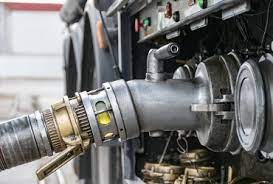In an era of convenience-driven consumption, fuel delivery services are emerging as a game-changer in the energy sector. These services offer a novel solution to a common problem – the inconvenience and time-consuming nature of refueling vehicles. By bringing fuel directly to consumers, these companies are not only simplifying the process but also potentially reshaping the economic landscape. Let’s delve into the economic impact of fuel delivery services. First and foremost, fuel delivery services create jobs. From drivers and logistics coordinators to customer service representatives, these companies require a diverse workforce to operate efficiently. Moreover, the growth of this sector stimulates demand for various skill sets, ranging from technology experts who develop mobile apps to marketing professionals who promote these services. This job creation contributes to reducing unemployment rates and fostering economic prosperity within communities. Furthermore, fuel delivery services drive innovation in the energy sector. By leveraging technology such as GPS tracking, route optimization algorithms, and mobile payment systems, these companies streamline operations and enhance customer experience.

This technological advancement not only benefits consumers but also promotes efficiency and cost-effectiveness within the industry. Additionally, fuel transport company fort worth expand, they may incentivize research and development in alternative energy sources, ultimately leading to a more sustainable future. Moreover, the convenience offered by fuel delivery services translates into tangible economic benefits for consumers. Time is a valuable resource, and by eliminating the need to visit gas stations, individuals can redirect their efforts towards more productive activities. Whether it is spending extra time with family, working on personal projects, or engaging in leisure activities, consumers appreciate the freedom and flexibility afforded by fuel delivery services. This increased efficiency in daily routines can have a positive ripple effect on the overall economy. From a business perspective, fuel delivery services have the potential to disrupt traditional fuel retail models. This competition fosters innovation and drives down prices, benefiting consumers and promoting market efficiency.
By offering competitive pricing, flexible delivery options, and personalized services, these companies challenge the dominance of traditional gas stations. Additionally, fuel delivery services may incentivize gas stations to improve their own services and adopt similar delivery models, thereby enhancing competition and consumer choice. One concern is the impact on existing gas stations and convenience stores, which rely heavily on fuel sales for revenue. As consumers increasingly opt for delivery services, traditional brick-and-mortar businesses may face declining sales and profitability. Moreover, the expansion of fuel delivery services raises questions about safety regulations, particularly concerning the transportation and storage of flammable materials. Addressing these concerns requires collaboration between industry stakeholders, policymakers, and regulatory agencies to ensure the safe and responsible operation of fuel delivery services. Fuel delivery services represent a significant innovation in the energy sector with far-reaching economic implications. By creating jobs, driving innovation, and enhancing consumer convenience, these services contribute to economic growth and prosperity. However, challenges such as competition with traditional gas stations and safety concerns must be addressed to maximize the benefits of fuel delivery services.